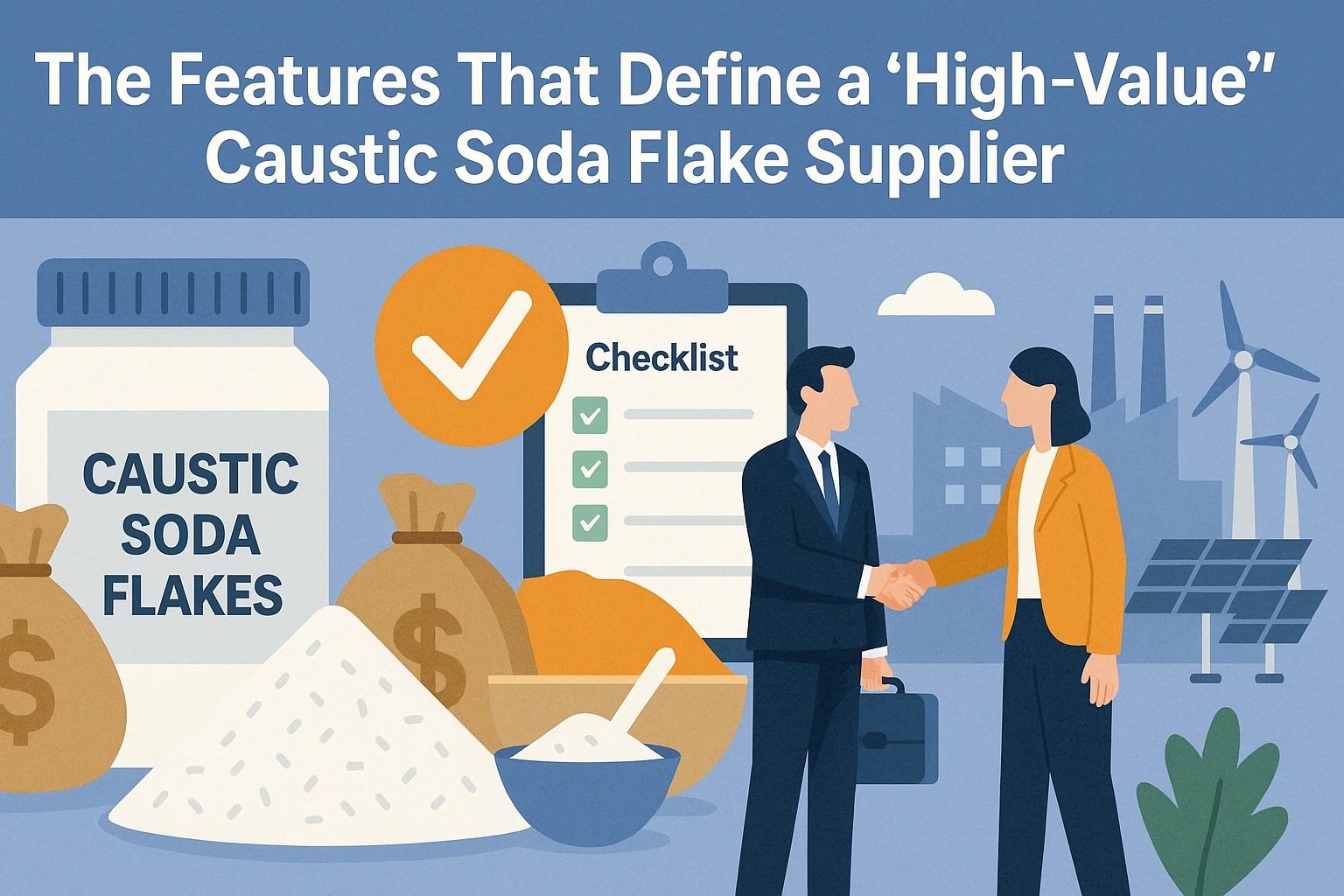Introduction: More Than Just a Low Price
In global caustic soda flakes procurement, unit price per metric ton is only one part of the value equation; what truly matters is how reliably and safely that NaOH supports downstream operations. High-value suppliers combine competitive pricing with consistent quality, strong logistics, and robust risk management, ensuring processes like pulp & paper, alumina, textiles, and water treatment run without disruption. Industry best-practice reports emphasize looking at total cost of ownership, not just initial quote, when selecting chemical partners.
Product Quality, Purity, and Technical Fit
A high-value caustic soda flake supplier delivers stable, high-purity NaOH (typically ≥98–99%) with tight control over impurities like sodium carbonate, chlorides, iron, and heavy metals, backed by recent Certificates of Analysis for every lot. Consistent physical form—free-flowing flakes with minimal caking and controlled moisture—directly impacts dosing accuracy, dissolution time, and equipment performance. Technical fit also means offering the right grade (membrane vs. diaphragm, flakes vs. pearls) and application know-how for each industry segment.
Logistics Strength and Supply Reliability
High-value suppliers pair strong production capacity with reliable logistics networks, minimizing lead times and supply interruptions across regions. They offer flexible incoterms, optimized warehousing, and packaging tailored to route and climate—such as moisture-barrier big bags, lined containers, and proper labeling to avoid damage and safety incidents in transit. Case studies show that optimizing logistics and grade selection with the right supplier can cut caustic soda total landed cost by double-digit percentages, even when the headline price is similar.
Safety, Compliance, and Value-Added Support
High-value NaOH suppliers maintain certifications like ISO 9001, ISO 14001, and often ISO 45001, demonstrating integrated quality, environmental, and safety management. They comply with transport and handling regulations (e.g., ADR/IMDG) and provide clear Safety Data Sheets, handling instructions, and training materials for hazardous alkali chemicals. Value-added support can include on-site or remote technical advice, help with dosing optimization, corrosion mitigation strategies, and assistance in meeting environmental discharge or ESG targets.
How Buyers Can Evaluate “High-Value” Suppliers
-
Review COAs, impurity profiles, and variance across recent batches to confirm product consistency.
-
Assess delivery performance, contingency plans, and logistics solutions—not just factory capacity.
-
Verify certifications, regulatory compliance, and safety culture through audits or third-party documentation.
-
Compare total cost of ownership by including purity-adjusted cost, freight, handling, waste, and operational impacts, not only the per-ton price.
-
Request references and case examples from similar industries to validate real-world performance and service levels.

Leave a Comment